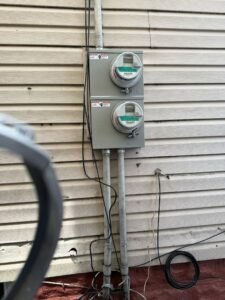Understanding the EV Charging Station Installation Cost
So, you’ve made the switch to an electric vehicle—good for you! But now comes the question: where and how do you charge it conveniently? While public charging stations are an option, having a personal EV charging station at home can be a real game-changer. But what about the EV charging station installation cost? Here, we’ll break down the costs, factors affecting them, and some tips for making the process as smooth (and affordable) as possible.
Why Install an EV Charging Station at Home?
Let’s face it—charging at home is just easier. Instead of planning around public stations, a home charger lets you plug in at night and wake up to a full battery every morning. It’s a matter of convenience and control over when and how you charge. But before you jump into the installation, let’s understand what impacts the EV charging station installation cost and how to make the best choice for your needs.
Factors Affecting EV Charging Station Installation Cost
1. Type of Charging Station
One of the biggest cost factors is the type of charger you choose. There are three levels:
- Level 1 Charger: This is the slowest, usually plugged into a standard 120V outlet. While it’s inexpensive, it can take over 24 hours to fully charge your vehicle.
- Level 2 Charger: A common choice for home installations, using a 240V outlet (like what your dryer uses). It charges faster but typically costs more to install.
- Level 3 Charger (DC Fast Charging): Rarely installed at home due to high costs and power requirements. It’s mostly for commercial or public stations.
For most homeowners, a Level 2 charger is the way to go, balancing speed and cost. Installation of a Level 2 charger usually sets the stage for a more accessible charging setup, but it significantly affects the overall EV charging station installation cost.
2. Electrical Work and Upgrades
If your home isn’t wired to support a Level 2 charger, you may need to call in an electrician for upgrades. This could include:
- Electrical panel upgrades: If your panel doesn’t have room for a 240V breaker, you’ll need an upgrade, which can add several hundred dollars to the cost.
- New circuit installation: A separate circuit may be required, which could also increase the EV charging station installation cost.
The age and current setup of your home’s electrical system play a big role here, so be sure to have a qualified electrician assess it before starting the project.
3. Distance to Power Source
The location of your charger relative to the main electrical panel can also impact installation costs. If you want the charger on the other side of the garage or further from the panel, it requires more wiring and possibly trenching, which adds to the long island emergency electrician.
4. Permits and Inspection Fees
Depending on where you live, you may need permits and inspections before the installation. These are essential to ensure safety and adherence to local regulations but can also add around $100 to $500 to your total cost. Check with your city or county to see if permits are required, as failing to do so could lead to fines or issues down the line.
Typical EV Charging Station Installation Cost Range
So, what does all of this add up to? Let’s break down the average EV charging station installation cost.
- Charger Cost: A Level 2 charger can range from $400 to $1,200.
- Installation Cost: This varies widely based on the factors above, generally costing between $300 and $1,500.
- Electrical Upgrades: If needed, panel upgrades and circuit installations can add anywhere from $500 to $2,000.
On average, you might expect the EV charging station installation to land between $1,200 and $3,000, depending on the specifics. While this seems like a hefty investment, consider it as an essential part of your EV lifestyle. Plus, many states offer rebates or tax incentives, which can help offset these costs!
Tips to Save on EV Charging Station Installation Cost
1. Check for Rebates and Incentives
Many local governments, utility companies, and even the federal government offer rebates or incentives for EV charger installations. This can significantly reduce the EV charging station installation cost. Always look into these options before making any purchases.
2. Choose a Strategic Installation Location
Picking a spot close to your main panel can save on installation costs. For example, if your garage is next to the panel, the setup will be simpler and cheaper. It’s all about minimizing the distance and complexity of the wiring required.
3. Go for a Qualified Electrician
While it may be tempting to go for the cheapest option, always choose a certified electrician with EV charger experience. A botched job could lead to expensive fixes later, or worse, safety hazards. Look for electricians who have EV charger experience, as they’ll be familiar with potential hurdles and may even offer package deals.
Is It Worth the EV Charging Station Installation Cost?
Absolutely! Think about it: the convenience of having a home charging station pays off in the long run. No more driving around looking for available public stations, and you can say goodbye to those pricey per-minute charges some public stations impose. With a home setup, you get the comfort of charging on your own schedule and the peace of mind that your EV is always ready to go.
Final Thoughts
While the EV charging station installation cost may seem significant at first, the benefits of having a personal charging station at home are well worth the investment. From choosing the right charger type to finding ways to cut down on costs, a little planning goes a long way. So, start your journey to convenient, at-home EV charging today and enjoy all the perks that come with it!



